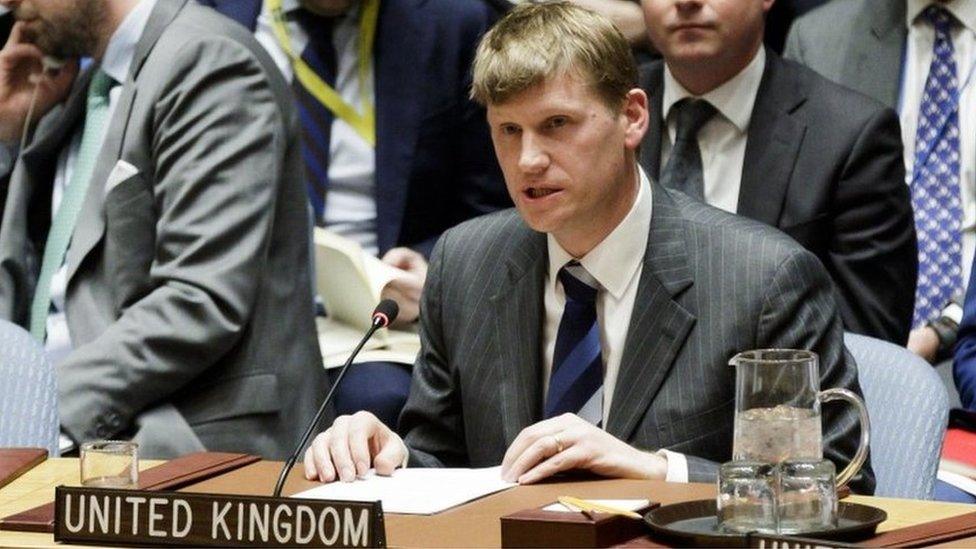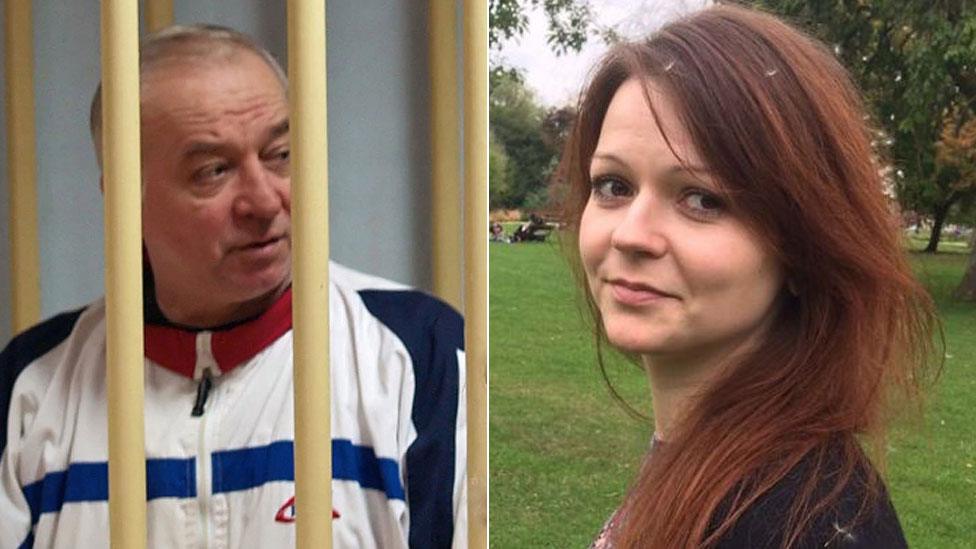Russian spy: No easy choices for UK
- Published

The UK is seeking support in the UN Security Council but knows Russia can sabotage the process
There are no easy political choices for the prime minister.
She has taken significant steps to try to punish Russia for the poisoning attack in Salisbury with the biggest diplomatic moves against Russia since the end of the Cold War.
But the government is all too aware that there is likely to be retaliation from Moscow, alongside ongoing denials and scorn in the coming days.
By implication then, the government is well aware that they will have to make more moves in the coming days, or risk looking as if they have backed down after one opening blast.
But ministers also know that bigger and bolder moves can't be taken without support from international friends and allies.
But as soon as other countries' interests come into play, so too do competing demands for them.
At the UN, Russia itself, of course, can sabotage the process. In the EU other countries, even Britain's friends, have other considerations to take - closer business ties, a reliance on Russian gas.
No 10 has put significant effort into trying to shore up friendly signals from allies, but words of support may not translate into a commitment to any firm actions.
Ministers obviously felt they had little choice but to take firm action today but in the longer term, it is clearly not diplomatically desirable for Britain to have plunged its relations with Russia into the deep freeze if friendly countries aren't willing to try to help in meaningful ways.
The prime minister's undoubtedly tricky position is however shored up by noisy support from her backbenches, a unity that she is unaccustomed to.
The roles have perhaps been reversed. Because in the last couple of days Labour has looked like two parties again, with the Tories cheering their rival backbenchers opposite when they rise to support the government's position in the Commons - while Jeremy Corbyn's front bench team stayed silent at times, arms crossed, faces glum.
And at least one senior frontbencher in the Labour Party is considering leaving his post tonight, and Labour MPs are circulating a motion that explicitly backs Theresa May's position, not the Labour leader's.
The uneasy truce in Labour that's held since the general election has cracked wide open again. To his supporters, one of Jeremy Corbyn's fundamental appeals is that he doesn't believe in going along with the government on foreign policy.
Simply, he is not ready yet to point the finger at the Russian state. But for others in Labour this is unacceptable, and by betraying the tradition that the main two parties stick together in this kind of situation, at least publicly, he is also betraying some of Labour's own traditions.
Forget Brexit for now, this challenge to our relations with the rest of the world could become a defining feature of our politics for both sides at home.
- Published14 March 2018
